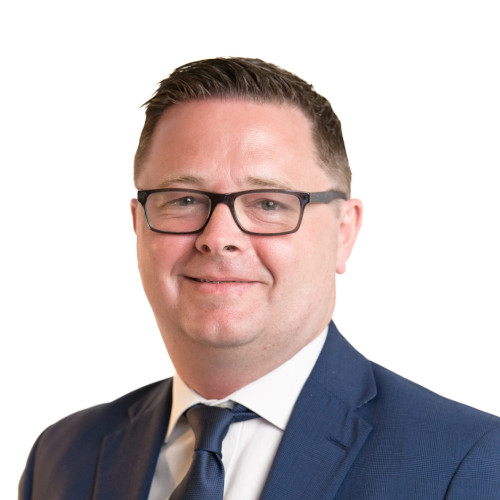Social Work England (SWE) replaced the Health and Care Professions Council (HCPC) in 2019 as the specialist body tasked with regulating social workers in England. SWE is committed to raising standards in the sector to make sure that people receive the best possible support when needed. They aim to meet this goal through collaboration which it says will ensure that the public are not only protected but also enabled to make positive changes and improve their lives.
With its focus on protecting the public, SWE set professional standards and oversee education and training in the sector. They will when necessary, also take action against social workers where their fitness to practise is considered to be impaired.
Why choose Olliers?
Olliers Solicitors have a team of experienced solicitors on hand to provide legal advice and assistance to social workers facing investigation or proceedings brought by the SWE. Our experts have dealt with the full range of cases, including allegations of poor performance; serious misconduct; dishonesty and cases where the professional’s health has a potentially adverse effect on their work.
We provide expert representation throughout the course of the proceedings, advising at all stages of the process, from initial referral to assistance with interim order matters and, if necessary, at fitness to practise hearings.
As professionals, we understand the anxiety that such proceedings can cause and we appreciate the potentially far –reaching consequences for a social worker’s practice, as well as, their professional and personal reputation, finances and even their family life. We work closely with our clients and take a pro-active approach to drafting appropriate submissions and making representations, as necessary, to ensure your practice can continue.
Our approach means that we have earned a reputation for meticulous preparation, sound advice and first-rate results for those we represent. Therefore, if you are subject to SWE proceedings or find yourself under investigation by your employer or any other regulatory body, please get in touch and let us help you navigate the process.
What types of cases can Olliers assist with?
We have assisted professionals across the health and social care sector with a wide range of regulatory matters, as well as, associated criminal proceedings. Our experience includes:
- Providing expert advice during the course of regulatory and criminal investigations
- Attendance at meetings
- Preparation of responses to concerns/allegations
- Representation at interim orders hearings
- Representation at fitness to practise hearings
- Appeals to the High Court against decisions of the regulator
- Applications for restoration to the register following erasure
- Criminal investigations including representation at PACE interview
- Advice and assistance in relation to Disclosure and Barring Service matters
- Providing advice and representation for inquest proceedings
What can I expect following a referral to SWE?
Like other regulators, SWE will inevitably receive many complaints and concerns every year but not all will result in an investigation, indeed the majority will be closed down as they do not meet SWE thresholds or are matters that they are not able to consider, for example minor issues about allegedly rude behaviour or lateness at appointments.
On receipt of a concern, therefore, the first thing SWE will do is triage the matter which means that they will make sure the concern relates to a social worker and then consider whether or not it raises the question of impairment. This tends to arise in cases involving alleged misconduct; lack of competence or capability; criminal convictions or cautions; serious health issues; a determination by another regulatory body; being barred from working with children or vulnerable adults or insufficient knowledge of the English language which calls into question the social worker’s ability to practise safely.
Those involved in the triage stage are not concerned with deciding the facts of the case rather whether there are reasonable grounds to open a full investigation. They will consider a number of factors including (but not limited to):
- The seriousness of the concerns
- The likelihood of there being sufficient evidence to support the concern
- Whether the concern/reported incident is isolated or indicative of a pattern of behaviour
- Any remedial action already taken
- Whether there is evidence of a breach of established standards or guidance
SWE endeavours to complete the triage stage within 12 weeks of receiving a concern but this may vary depending on the nature of the concerns and whether or not they give rise to further enquiries.
For those that do require investigation, both a lead investigator and an investigator will be assigned to gather all relevant evidence and prepare the case for referral to the case examiners. The investigator will also act as a single point of contact for all parties and provide relevant support to those involved.
It is important to note that professional standards requirements mean that there is an expectation upon social workers to fully co-operate with any enquiry into their fitness to practise. It is, however, important and sensible to seek legal advice before providing any information on the concerns and worth noting that well-crafted early engagement can result in matters being closed down sooner rather than later.
At the outset, SWE will also consider whether the concerns raised are so serious as to require immediate action in the form of a suspension or restrictions being placed on a social workers practice. This will usually occur in cases where there is information to suggest that the social worker may pose an immediate risk to the public, pose an immediate risk to themselves or if there is some other public interest in taking interim action.
Interim Orders
It is important to note at the outset that adjudicators dealing with an interim orders application do NOT make findings of fact or determine any allegations which may be made against a social worker. Their function is to consider whether or not it is necessary to make an order against the social worker on an interim basis in order to protect the public or where it is the public interest to maintain public confidence in the profession and uphold proper standards of conduct and behaviour.
IOT hearings are generally held in private and dealt with on the papers although a social worker can request an oral hearing. The written decision of the adjudicators is not published but if an order is made, it will apply and be recorded on a social worker’s register immediately. Any interim order will be reviewed every six months although this can be brought forward in the event of new and relevant information coming to light.
What does a SWE investigation involve?
As part of their investigation into the concerns raised, SWE will collate evidence from a number of sources to help inform the decision about what, if any, action needs to be taken. This will generally include statements from the complainant but may also include statements or evidence from the social worker’s employer or colleagues, as well as, relevant expert evidence.
By their nature, investigations can take time and although SWE aims to conclude all investigations as soon as possible and within six months, this is not always possible.
Having conducted their investigation, SWE will write to the social worker providing the documents and evidence gathered in respect of the concerns raised. The social worker will be given “sufficient time”, usually at least 14 days, to respond and we would strongly urge any social worker to get in touch before responding. Our lawyers have considerable experience in drafting appropriate submissions which can lead to matters being concluded without any further action.
Once all of the information has been collated, including the social worker’s written representations, the case will be passed to two case examiners for a decision. One case examiner will be a registered social worker and the other a lay person.
Interestingly, as well as an investigation report and a bundle of evidence, the case examiners will also, where appropriate, be provided with any recommendations as to whether the case should be closed or referred for no further action.
The case examiners will review all of the material available to them and ordinarily reach one of the following decisions:
- conclude a case with no action
- closer a case but issue a warning or advice
- refer a case to a final hearing
- offer the social worker an accepted disposal as an alternative to referral to a final hearing
In carrying out their role, the case examiners will consider if there is a realistic prospect that a panel at a final hearing would find the social worker’s fitness to practise impaired to such a degree that action would need to be taken; this is known as the realistic prospect test.
Where the case examiners decide that the realistic prospect test is met, they will also consider whether there is a public interest in holding a hearing and whether there is a more suitable order that might be secured by agreement; this is known as an accepted disposal.
Accepted Disposal
Accepted disposals are intended to avoid un-necessary public hearings where a suitable outcome can be agreed. They are not appropriate in every case and will not be offered where the social worker disputes key aspects of the concerns or where it is in the public interest for the case to be dealt with at a hearing.
Where an accepted disposal is considered appropriate, it will be put to the social worker who will have up to 28 days to consider the same and may provide further information to the case examiners who may make minor revisions to the proposal at their discretion. For a case to be closed by way of an accepted disposal, the social worker MUST accept that their fitness to practise is impaired and agree to the proposed outcome.
Those outcomes include:
- no further action
- advice to the social worker
- a warning order
- conditions of practice for up to 3 years
- suspension for up to 3 years
- a removal order
Any accepted disposal outcome will be published online.
SWE Hearings
When a case is referred for a final hearing, it will be for the adjudicators to decide if a social worker’s fitness to practise is impaired and what action, if any, is needed.
When a case is referred to a hearing, the parties will be expected to engage so that appropriate arrangements can be made in relation to matters such as the timetable for disclosure of evidence, witnesses and an indicative listing window for the final hearing
Hearings are generally held in public except where they are considering confidential information, or information about a social worker’s health.
So far as the process for the hearing is concerned, it will generally begin with the Chair introducing themselves and their fellow panel members. The hearing will then deal with any preliminary issues before moving on to the presentation of the SWE case which may involve calling witnesses who your representative will have the opportunity to question on your behalf.
The social worker, often through your legal representative will then call evidence in support of your own case which may involve giving evidence yourself and calling witnesses.
Both sides will then have the opportunity to make closing submissions on the evidence before the adjudicators retire to decide whether or not the case is well founded. This means that they must decide if SWE have proved the alleged facts and if so whether the proven facts amount to the grounds set out in the allegation e.g. misconduct; criminal convictions or cautions; serious health issues; a determination by another regulatory body; being barred from working with children or vulnerable adults as set out above. They must decide if the social worker’s fitness to practise is currently impaired as a result of the same.
If a social worker’s fitness to practise is found to be impaired, the adjudicators will then decide whether or not to impose a sanction; they must impose the appropriate sanction taking account of any submissions made in respect of remediation and insight whilst ensuring that the public is protected and confidence in the profession maintained.
SWE Sanctions
The sanctions available include:
- no further action
- advice
- warning
- conditions of practice
- suspension
- removal
Applications for restoration
If a social worker is removed from the register, they can apply to restore their name after five years.
Our experience
Our expertise in this area is extensive and we regularly deal with the full range of fitness to practise issues, including:
- Poor performance
- Criminal convictions/allegations
- Misconduct
- Dishonesty allegations
- Misuse of drugs or alcohol
- Fitness to practise concerns based on physical or mental health
Funding
Olliers are able to assist on either an hourly rate basis or on a ‘fixed fee’ basis to provide peace of mind that costs will not escalate beyond what is agreed. We are happy to provide a bespoke quotation for your individual case. We also have experience dealing with many of the leading insurance providers and defence organisations so are happy to discuss your needs with them to ensure that you get the best representation from your legal team of choice.
Should you require assistance with any matter before SWE, please contact our specialist professional disciplinary team for an initial confidential discussion as to how Olliers can assist.




